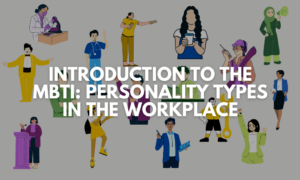Skills-Based Hiring: An Overview
Do you remember in 2020, when colleges were forced to shift to a test-optional application process? With the pandemic in full force, test centers weren’t able to conduct the SAT and ACT assessments, forcing even the most prestigious Ivy Leagues and MIT into an unprecedented turn of events.
While there had been controversy surrounding universities going test-optional even before COVID hit, the big names remained adamant about requiring them. But after the shutdown, their applicant pools for the 2021 freshman class became a case study in diversifying acceptance processes.
What they found was by not requiring these test scores, the sheer number of applicants increased by nearly 20,000, at least for Cornell. Not only that, but Cornell saw a 50% increase in first generation students in their 2021 first-year class.
When we think about recruiting and hiring practices, a similar phenomenon has come into play within the last couple years. With the rise of AI, new fields being created, employment shortages post pandemic, and an overall shift in employee expectations, employers have begun to experiment with a new technique: skills-based hiring.
What is Skills-Based Hiring?
In a nutshell, it’s exactly what it sounds like – hiring based on transferable skills and not direct experience. This means that in a controversial move, an increased number of employers are taking college degree requirements and minimum years of experience out of the job description.
In the hiring process this looks like a candidate lacking a degree in IT or computer science, but having a Certified Information Systems Security Professional (CISSP) certification. A skills-based hiring approach would hire for that skill rather than the full degree. It sounds reasonable, right? Except, this approach hasn’t been widely accepted by companies and more importantly, degree holders.
Similar to the controversy around not requiring test scores for college admission, the skills-based debate begins to question the value of a college education. If people are going to be hired on for skills and not years of experience or education, what is the value of spending thousands of dollars to attend college? This becomes the central question of the argument.
If we look back to what happened with Cornell though, we can see that while it may seem the playing field is being rocked for some, it’s actually being leveled for others. Hiring for skills, rather than experience, not only attracts more talent to the stacks, but it allows for a more diverse pool of applicants to choose from. Nearly ⅔ of the potential job pool doesn’t hold a college degree and within that fraction, a disproportionate number are minoritized groups. By making higher level jobs accessible for people who have the same skills as college educated candidates, you get twice the applicants each with different types of experience.
Opposition says that the 70 million plus people without college degrees aren’t qualified, but actually these STARs, (skilled through alternative routes), often hold high school diplomas, associates degrees, certifications, licenses, or other credentials that they have simply attained through other means. Which leads us into a fundamental shift in the workforce that has been a long time coming.
A Systematic Shift to a Different Way of Life
With the rise of Gen-Z and post-pandemic life, flexibility and work-life balance have reemerged as some of the most important values for job seekers when looking for a job or choosing a career path. The COVID-19 shutdown made people realize, they actually like spending time with their family and having more time to engage in life’s activities. So, in this post-shutdown world, people want a new normal.
A skills-based approach allows for mothers who have spent the last ten years raising their kids to reenter the workforce with certifications they were able to work on along the way. It allows recent graduates who were working long hours to pay for their tuition, to see the fruits of their efforts even though they didn’t have time for an internship. It opens the door for people who couldn’t afford a higher education, but have the skills, to still work their way up the ladder and have an equal opportunity at higher paying jobs.
Will we actually see this approach become the new normal in hiring practices? It’s going to take a lot more than just saying yes. If it took a forced closure of testing sites to see an increase in first generation students at Cornell, then it’s going to take a similar push in order to see real results.
Tune into part 2 of this series to find out what are going to be the most successful and sustainable ways to implement a skills-based hiring approach that will be here to stay!
While you wait for part 2, check these out:
Have you followed us on social media?
For more information about our app and more, check out our Linktree!
About LGC
Since 2003 LGC has been building connections between businesses with staffing needs and job seekers looking for new opportunities. Our range of solutions includes temporary and permanent placements (and everything in between) for a variety of industries. With offices located nationwide, we can tap into a dynamic pool of talented professionals. We have a passion for creating partnerships that last and work hard every day to ensure both clients and candidates reach their employment goals.





